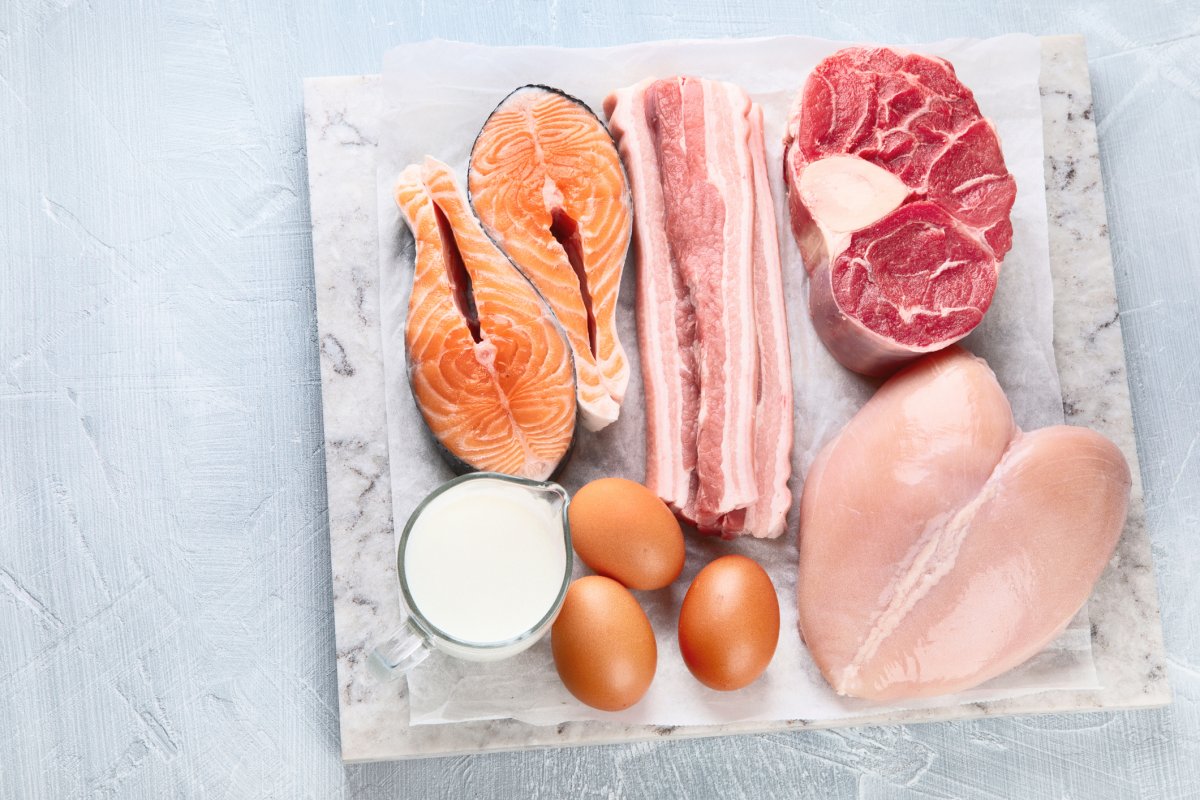A common nutrient found in everyday foods might be the key to a long and healthy life, according to researchers from Columbia University.
The nutrient in question is taurine, a naturally occurring amino acid with a range of essential roles around the body.
Not only does the concentration of this nutrient in our bodies decrease as we age, but supplementation can increase lifespan by up to 12 percent in different species.

Our main dietary sources of taurine are animal proteins, such as meat, fish and dairy, although it can also be found in some seaweeds and artificially supplemented energy drinks. It can also be produced inside the body from other amino acids.
In a study published in the journal Science, a team of researchers from around the world looked at the effects of this nutrient on health and lifespan. "This study suggests that taurine could be an elixir of life within us that helps us live longer and healthier lives," Vijay Yadav, one of the leading authors of the study, said in a statement.
Yadav, assistant professor of genetics and development at Columbia University Vagelos College of Physicians and Surgeons, first discovered the importance of taurine while researching osteoporosis, uncovering the nutrient's essential role in regulating bone growth. Similar studies have also shown that taurine can benefit immune function, obesity and the nervous system.
"We realized that if taurine is regulating all these processes that decline with age, maybe taurine levels in the bloodstream affect overall health and lifespan," Yadav said.
In the recent study, Yadav and his colleagues found that taurine concentrations decrease significantly as we age, with concentrations more than 80 percent lower in 60-year-olds compared to 5-year-olds.

From these results alone, it was still unclear whether declining taurine levels were a cause or a consequence of the aging process. So, to investigate the effects of taurine supplementation on health and lifespan, the researchers fed taurine to a group of middle-aged mice once a day for the remainder of their lifespan, comparing their health and longevity to mice that had not been given the treatment.
Remarkably, the average life span of these taurine-treated mice increased by 12 percent in females and 11 percent in males. At a cellular level, taurine supplementation also decreased numbers of "zombie cells" (old cells that can produce inflammation), increased stem cells in some tissues, reduced DNA damage, and improved performance of the cells' energy-generating powerhouses.
The team extended these experiments to a range of different species, including daily supplementation to a group of rhesus monkeys over the course of six months. Again, they found significant improvements in a range of different age-associated health markers, including bone density, blood sugar levels and signs of liver damage.
"We were particularly pleased to say the least when we got these results in different species," Yadav told Newsweek. "We were surprised by how conserved the effect of taurine was in evolutionarily divergent species. We saw the effect in worms, mice, zebrafish and monkeys."
In humans, higher taurine levels have been associated with better health outcomes, including fewer cases of type 2 diabetes, lower obesity, reduced hypertension and lower levels of inflammation. We do not know for sure whether these correlations are directly related to taurine levels, but they are consistent with the results from the animal studies.
The team also found that taurine levels increase as a result of exercise, particularly in those with an active lifestyle. "No matter the individual, all had increased taurine levels after exercise, which suggests that some of the health benefits of exercise may come from an increase in taurine," Yadav said.
Top taurine-containing foods
- Shellfish
- Dark meat of turkey and chicken
- White fish
- Shrimp
- Squid and octopus
- Pork
- Beef
- Tuna
Data from Wójcik OP et al., Atherosclerosis, 2010
Exactly how much taurine is required to see significant health improvements is still unclear. "The human equivalent doses for what we have used in mice would be 6 grams or 3 grams per day," Yadav said. "Shell fishes have the highest levels of taurine and even there the levels are roughly 1mg per gram weight, so if one eats 500 grams of shellfish you get 500mg.
"We also need to remember that after ingestion there will be loss of taurine in the digestive tract during digestion and absorption."
While this study provides exciting insights into the potential roles of taurine in aging, more work is needed to determine how and if taurine supplementation could be used to improve human health and lifespan in the future.
"The next stage of this research is a randomized placebo-controlled taurine trial in multiple populations to find out whether a taurine intervention will work in humans as well as it does in animal models," Yadav said.
Uncommon Knowledge
Newsweek is committed to challenging conventional wisdom and finding connections in the search for common ground.
Newsweek is committed to challenging conventional wisdom and finding connections in the search for common ground.
About the writer
Pandora Dewan is a Senior Science Reporter at Newsweek based in London, UK. Her focus is reporting on science, health ... Read more





